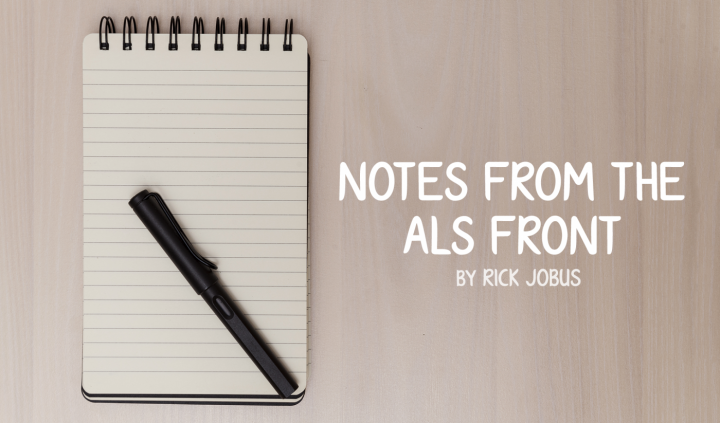Facing the Rarefied Air of ALS with Dignity

“I don’t want to belong to any club that would have me as a member.”
That sentiment, expressed by comedian Groucho Marx in 1949 about his affiliation with a particular social organization, was exactly my reaction in learning of the National Organization for Rare Disorders (NORD) some 60 years later.
Founded in 1983, NORD was instrumental in the passage of the Orphan Drug Act, which sought to boost development of therapies for rare diseases. Included in NORD’s mission is the advancement of the “identification, treatment, and cure of rare disorders through programs of education, advocacy, research, and patient services.”
Make no mistake, NORD is a noble agency, and I’m thankful for its existence. It’s just that, all things being equal, my obvious preference would be to be exempted from association with it by not suffering from a rare disease.
As part of their education and advocacy tenets, NORD sponsors Rare Disease Day on the last day of February each year. To lend emphasis to the cause, ALS News Today publisher Bionews Services is encouraging its content contributors to include a bit about what makes us rare (see the hashtag #WhatMakesMeRare on social media). Try as I might, I cannot conjure up the slightest evidence for that self-designation. If anything, I am uncommonly common.
When I think of the word “rare” in conjunction with ALS, my mind gravitates to societal luminaries. For example, baseball legend Lou Gehrig, whose uncanny gift of squarely striking a high-speed spinning sphere with a 3-pound cylinder, coupled with his unmatched durability, was unquestionably special.
Equally so was theoretical physicist Stephen Hawking, who used his multilayered genius to explore and explain both the subatomic world and the infinite nature of the cosmos.
Or, consider the iconic vision, political intellect, charisma, and military mind of Mao Zedong, the founder of the People’s Republic of China, whose global influence is still pervasively felt.
Those three were undeniably rare. Many other ALS sufferers have experienced unique and laudable achievement in their realm of influence. I, however, cannot be counted in that number.
I suspect most of my fellow victims judge themselves similarly. We are a mixed bag of ordinary folks thrust into an extraordinarily precarious circumstance. Yet, when the manner in which these people have borne up to a horrific diagnosis is factored in, a different — and decidedly rare — image emerges.
Over the course of my ALS hardship, I have had meaningful interaction with scores of individuals battling the same monster. Although it’s a melting pot derived from every demographic, I’ve noticed a singular commonality among this constituency. To a person, they refuse — with dignity — to yield to ALS’s crushing overbearance.
In response to steady, often rapid, physical decline and a worst-case prognosis, they muster on. On their worst days, they maintain a stiff upper lip that any Brit would be proud of. They are accepting of their fate, but never resigned to it. They are realistic, yet hopeful. They refuse to wither, rather they find purpose and remain vital.
They eschew bitterness, promoting good cheer instead. They derive wisdom from the unlikeliest of sources. They exemplify a “one for all, all for one” esprit de corps. They don’t allow ALS to define them, they define it. They are a rare bunch, indeed.
One of my favorite biographies is about Frank Sinatra, titled “The Way You Wear Your Hat: Frank Sinatra and the Lost Art of Livin’.” The book purports, among other things, that life is significantly shaped by attitude and approach. In the face of death knocking on their door, my ALS-afflicted friends never misplace the art of living. They inspire me to strive to wear my figurative hat in a Rare way, with every breath that I take.
***
Note: ALS News Today is strictly a news and information website about the disease. It does not provide medical advice, diagnosis, or treatment. This content is not intended to be a substitute for professional medical advice, diagnosis, or treatment. Always seek the advice of your physician or other qualified health provider with any questions you may have regarding a medical condition. Never disregard professional medical advice or delay in seeking it because of something you have read on this website. The opinions expressed in this column are not those of ALS News Today or its parent company, Bionews Services, and are intended to spark discussion about issues pertaining to ALS.







Leave a comment
Fill in the required fields to post. Your email address will not be published.